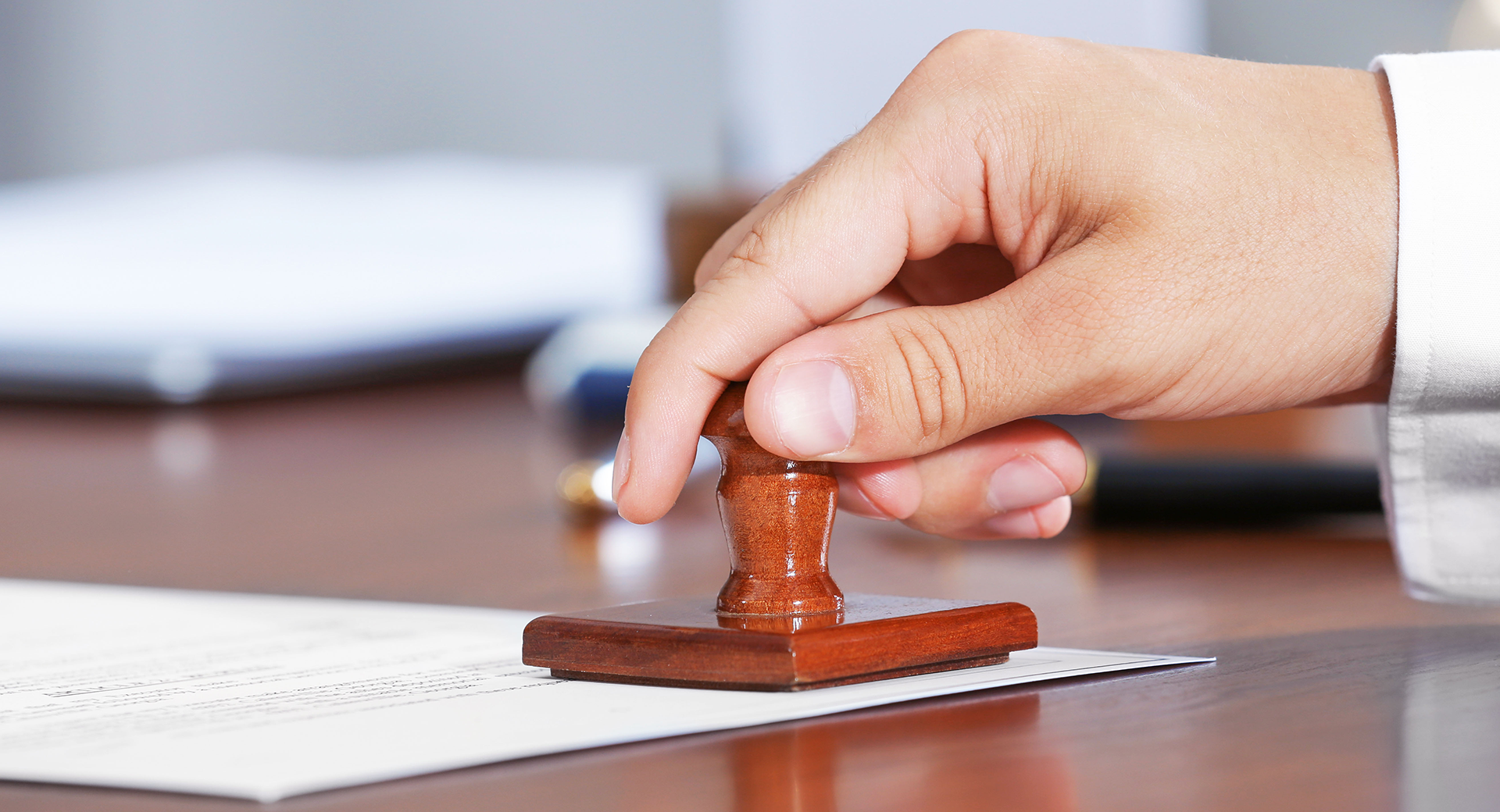Signs That it is Time to Update Your Will
Hibu Websites • March 7, 2022
A last will and testament is the recommended way to indicate your final wishes. Your will specifies how your property, possessions, and assets should be divided among your family, close friends, or charitable organizations. Once your will is created, you will want to review it and make changes regularly. Keeping your will updated will ensure a smooth transfer of your property and possessions after you pass away. Here are the primary signs that it is time to update your will.

It has been more than five years
You should review your will every five years. Laws and guidelines involving estate planning often change, including estate tax guidelines and line of succession changes. An estate planning attorney can ensure your will is valid and updated based on the latest rules and regulations.
You had a baby
Whether it is your first child or fifth, you may want to update your will each time your family grows. This allows you to name a guardian for each new child and add them as a beneficiary. Adding a guardian is one of the most valuable steps a parent can take when updating their will. New grandparents should also consider updating their wills to include grandchildren if desired.
You moved
Estate planning laws vary in each state. If you moved to Florida from another state, it is wise to have a Florida attorney review your will and make sure it is valid in Florida. Purchasing or selling a home is another reason to update your will. If you recently bought a house, this new asset is now part of your estate and should be included in your will. If you sold a home, you might have extra funds on hand that you wish to leave to your beneficiaries.
You changed marital status
Anytime you experience a change in marital status, you should update your will. If you get married, you can include your spouse as a beneficiary. If you are remarried and have stepchildren, you may also wish to include them in your will. Stepchildren do not fall into Florida’s intestacy line of succession, so the only way to ensure your stepchildren receive an
inheritance from you is to include them in your will. If you get divorced, you may wish to update your will to remove your ex-spouse and change your name, if applicable.
An executor or beneficiary passed away
A will’s executor fulfills a vital role during the probate process, so if a previously named executor in your will passes away, you will want to update the document and name a new executor. You will also want to update your will if a beneficiary passes away. If you do not, that beneficiary’s share of the estate may need to follow the Florida statutory provisions. If you wish
to allocate that part of your estate differently, it should be specified in your will.
You experience a change in finances
Significant financial changes, such as a job promotion that puts you in a higher income bracket, winning the lottery, or inheriting funds from another estate, are all reasons to update your will. Assess the current funds you leave your beneficiaries, and decide whether to increase these amounts or leave a portion of your estate to a charitable organization.
Jason D. Berger, P.A.— Florida estate planning attorney
At the Law Office of Jason D. Berger, P.A., we can assist you with creating, updating, and executing your will. We serve residents throughout the Treasure Coast, including St. Lucie, Martin, Indian River, and Okeechobee counties. Call us today at 772-403-5880 or schedule an appointment to discuss how we can help you draft or update your will.

Intestate line of succession Chapter 732, Part 1 of the Florida Statutes, codifies intestate succession, spelling out various inheritance scenarios if someone were to pass away without a will. It is important to note that only property without a named beneficiary/TOD/POD nor a named co-owner would fall under intestate succession. The "probatable assets"/estate would be divided in the following succession according to the Florida Statutes. Surviving spouse If all of your children are from the same marriage, or you are married without children, your spouse will inherit 100% of your "probatable assets"/estate. If you have children from a previous relationship or marriage, your spouse will receive 50% of the "probatable assets"/ estate, and your children would divide the other 50% of the "probatable assets"/ estate. Surviving exspouses are not entitled to inherit any estate assets, absent a legal agreement/court-ordered agreement to the contrary. Children Your children split your estate evenly if you were not married at the time of death. If one of your children passed away but has surviving children, your grandchildren would receive that child's share in the "probatable assets"/ estate. Adoptive and biological children have the same rights according to intestacy laws. Parents If you pass away without a surviving spouse or children, your "probatable assets"/ estate will go to your parents or grandparents. Siblings, nieces, and nephews If you have no spouse, children, or surviving parents, your "probatable assets"/ estate will be split among your brothers and sisters. If there are no surviving siblings, your "probatable assets"/ estate will pass on to any nieces or nephews. Other blood relatives If no one meets the above criteria, your "probatable assets"/ estate will be inherited by your next closest blood relatives. These relatives can reside in Florida, another state, or another country. Intestacy laws determine that full-blood relatives will receive more than half-relatives. For instance, if you have half and full-blood siblings, they would not share the estate equally.4 What happens to minor children if there is no will? If you pass away with children under 18 in your care, the surviving biological parent may become the children's sole guardian. If there is no surviving parent, a family member may petition to obtain guardianship/custody of your children. Will the state take my assets without a will? While many believe the State of Florida will take over your entire estate if you do not have a will, this is usually not the case. If you die without a will, your estate follows Florida's intestate line of succession to divide up your "probatable assets" / estate. Then, any remaining blood relatives will be notified and entitled to the estate. In the rare case that you do not have any heirs, blood relatives, or other eligible next-of-kin, the estate becomes "escheat" and will become government property. Benefits of having a will If you do not agree with how Florida statutes would divide your "probatable assets"/estate, having a will is a proper way to legally document your instructions of who is in charge and how you would like your estate divided (including personal possessions and family heirlooms). Create a will with Jason D. Berger, P.A. The Law Offices of Jason D. Berger, P.A. can help residents throughout the Treasure Coast, from Hobe Sound, Jensen Beach, Port Salerno, Rio, Stuart, Fort Pierce, Port St. Lucie, Vero Beach, Martin, Okeechobee, Indian River, Palm Beach and St. Lucie counties in establishing comprehensive estate plans. Call us at (772) 403-5880 or schedule an appointment to learn more.

What is probate? Probate is the legal process in which a person's will, trust, or the Florida Statutes shall be followed in the adjudication of remaining assets of the estate (which are otherwise unable to be acquired without a court order), along with the noticing and adjudication of remaining debts of the estate. Steps of Probate 1. Meet with an estate attorney The first step after the passing of a loved one is to meet with an estate attorney and gather the necessary documentation to present to the probate court (if necessary.) This includes the death certificate, will/trust, financial statements, and property deeds. 2. Petition Once the proper documentation is gathered, the lawyer will present these documents to the probate court, officially beginning probate. The lawyer must submit these documents to the county where the deceased resided. The probate court will determine the will’s validity and open the estate during this time. If the will is valid, the executor is given authority to handle the estate. 3. Notify beneficiaries and creditors Once the estate has been opened, it is the executor’s responsibility to formally notify any beneficiaries that the estate is open. The executor will also inform any known creditors about the opening of the estate. This may include credit card companies, banks, or mortgage lenders. Upon publishing, creditors have three months to make a claim with the estate. The executor shall list known creditors and present their claims to the court. 4. Establish an estate bank account Establishing and maintaining the estate bank account is a primary responsibility. All funds shall be placed in this account and held until valid creditor claims and expenses are paid. 5. Inventory the estate After creating the estate bank account, an inventory of the entire “probatable” estate is required. This can include real property like homes or timeshares, bank accounts, stocks, vehicles, and other assets. The value is presented to the court. 6. Pay debts and expenses After the three-month creditor period in which creditors may file a claim, funds in the estate bank account are used to pay off or reimburse proper claims, as well as bills or expenses. These could include utility bills and home maintenance expenses for a property owned by the deceased during probate, plus court and attorney fees. 7. Asset division Once debts are satisfied, the remaining estate account assets can be distributed to beneficiaries pursuant to Florida law. 8. Petition of discharge After debts are paid and assets divided, the probate attorney will present necessary documents to the court to show that the estate was handled legally and properly. If the probate court is satisfied, a discharge petition will be signed, officially ending the probate process. Jason D. Berger, P.A.: Treasure Coast probate attorney While the probate process can be avoided in Florida, the Law Office of Jason D. Berger, P.A., can certainly assist your family with probate matters. Call us at 772-403-5880 or request an appointment to get started.




Share On: